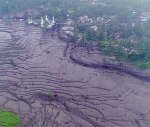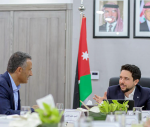You are here
Keeping the media informed and involved
Jun 09,2016 - Last updated at Jun 09,2016
The gag order issued by the government on news regarding Monday's attack on the General Intelligence Department’s office north of Amman is no doubt intended to serve the common good, but this is not how many in the media view the issue.
The authorities’ point of view is clear: they do not want the publication of any news that might influence the course of the investigation in the case or cause the circulation of any wrong information or rumours.
This is understandable since as soon as the information about Monday’s attack, which left five GID personnel dead, reached the public, one could read all sorts of information and misinformation on the terrorist “group” that perpetrated it, the way it took place, the type of weapon, the nationality of the attacker, his origin and the alleged involvement of his brother.
Most of the information in circulation was spread by social media users as well as some news websites.
Some of the information was correct and there is no denying that it may have been instrumental in mobilising the public, which led to the arrest of the suspect later in the day in a mosque not too far from the place where the terrorist attack took place.
The unprecedented assault was the talk of the town, the main issue debated on social media. This is not strange in view of its brutality and the fact that it is a national security issue that is of concern to every Jordanian.
But some social media users and media websites were out of line with their conclusions, analysis and provocations, publishing statements that could harm national unity and interests.
In their case, we understand the government reservations on publishing any further news on the attack pending the results of the investigation.
But the media, professional media, to be more precise, do not rely on rumours, did not help spread falsehoods or rumours about the attack and never invited trouble or incited to sedition.
Professional media seek the truth, work for balanced reporting, verify information and do not rush to spread falsehoods.
And contrary to some officials’ belief, professional media are the state’s best weapon against the rumour mill, provided they have access to information.
And here lies the conundrum.
The role professional media play cannot and should not be compared to that played by social media users and amateurish news websites; they should be supported and encouraged by the government and the public, and allowed quick access to information.
When it comes to issues of national security, the public is hungry for information and misinterprets the lack of it or falls prey to false information.
The gag order only leaves a vacuum that could be filled by rumours and falsehoods.
Monday’s attack should teach a lesson in this respect, and be a reason to address the shortcomings we have been witnessing over the past days.
To start with, authorities should be more open to the public and keep it apprised of the situation through credible media outlets.
Those that spread rumours should be held accountable.
The public has the right to know and resort to the proper channels for this knowledge. Eventually it will learn how to tell the difference between professional and non-professional media, between truth, and provocation, incitement, slander, harm to national unity and lies.
Fed the truth, the public will be able to avoid propaganda that terrorist groups use.
And since it was propaganda that recruited the suspected perpetrator of Monday’s attack, authorities should become seriously aware of the need to deal with the ideological part of the ongoing war on terror, and to keep the media informed and involved in this part.












